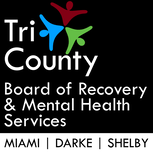- People with preexisting mental health conditions should continue with treatment plans during an emergency and monitor for any new symptoms.
- Avoid excessive exposure to media coverage of COVID-19.
- Take care of your body.
- Take deep breaths, stretch or meditate.
- Try to eat healthy, well-balanced meals, exercise regularly, get plenty of sleep and avoid alcohol and drugs.
- Make time to unwind and remind yourself that strong feelings will fade. Take breaks from watching, reading, or listening to news stories. It can be upsetting to hear about the crisis and see images repeatedly.
- Try to do some other activities you enjoy to return to your normal life.
- Connect with others.
- Share your concerns and how you are feeling with a friend or family member. Maintain healthy relationships.
- Maintain a sense of hope and positive thinking.
- Call your health care provider if stress reactions interfere with your daily activities for several days in a row.
Mental health providers are open and are able to serve existing and new clients via telephone and telehealth. See here for a roundup of local providers and their contact information. If you or someone close to you is in crisis, call the 24/7 Tri-County Crisis Hotline at 937-351-7347; reach the national Crisis Text Line by texting "4hope" to 741741; or call the National Suicide Prevention Lifeline at 800-273-TALK (8255).
 RSS Feed
RSS Feed
